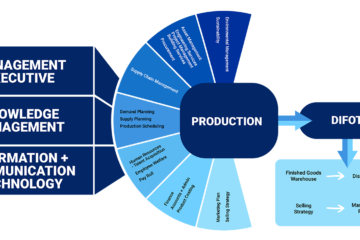Author John O’Connor CEO
Mentoring in Manufacturing: The Key to Closing the Skills Gap
Manufacturing is at a crossroads. Across industries, companies are grappling with labor shortages, rising costs, and a shifting global supply chain. For textile manufacturing, the challenge is even more pronounced in regional areas, where attracting and retaining talent is difficult. As Baby Boomers retire, or worse, pass away, they take with them decades of irreplaceable expertise. At the same time, younger generations are showing less interest in careers in manufacturing, gravitating instead to the “sexier” fields of fashion design, graphic design, or brand development.
Meanwhile, global economics are reshaping supply chains. Decades ago, Western societies offshored much of their manufacturing to Asia. But today, with the US reviewing tariffs and import duties, a new push is underway: reshoring and nearshoring. This means reduced freight costs, shorter lead times, and fresh opportunities for South American and domestic textile producers. The race is on—but seizing these opportunities requires skilled people on the ground.
And this is where mentoring programs become essential. Companies looking to implement effective mentoring initiatives can benefit from the guidance of experienced executives and senior managers. Adamant International’s team is well positioned to help organizations design structured mentoring programs that develop future leaders and secure critical skills.
Why Mentoring Matters More Than Ever
Structured mentoring is one of the most effective strategies to bridge the skills gap while preparing organizations for future growth. Unlike traditional training programs that focus narrowly on technical skills, mentoring provides:
- Succession Planning: Preparing the next generation of leaders.
- Knowledge Transfer: Retaining decades of experience within the company.
- Employee Engagement: Demonstrating investment in people to boost retention.
- Business Readiness: Equipping teams with technical, leadership, and decision-making capabilities.
Engaging experts, such as Adamant International’s executives and senior managers, can accelerate program design and ensure measurable outcomes.
Sidebar 1: 5 Reasons Every Manufacturer Needs a Mentoring Program
- Close the skills gap created by retiring Baby Boomers.
- Build succession pipelines that secure future leadership.
- Retain critical technical knowledge within the business.
- Attract and retain young talent with clear career paths.
- Boost productivity, quality, and morale through stronger leadership.
The Gaps We Must Address
A recurring issue in manufacturing training is the overemphasis on technical knowledge while neglecting leadership and business management skills. Too many highly skilled technocrats have failed when promoted into production or senior management roles because they lacked broader managerial capabilities.
Many companies also lack structured career paths for young technicians or university graduates. Without visible growth opportunities, talent is quickly lost. The labor shortage further limits cross-training opportunities.
Mentoring combines technical and managerial development, ensuring mentees are ready not only for their current roles but also for future responsibilities.
What an Effective Mentoring Program Looks Like
A strong mentoring program should include:
- Structured Milestones: Clear goals and timelines.
- Exposure to Multiple Roles: Prepares mentees for future senior positions.
- External Training: Complements in-house learning with broader education.
- Soft Skills Development: Leadership, communication, and business management.
- Knowledge Sharing Culture: Encourages mentees to mentor others, creating ripple effects.
When designed well, mentoring strengthens the entire organization, making it more resilient and competitive.
Sidebar 2: The Cost of Doing Nothing
- Lost knowledge as experienced employees retire.
- Succession plans fail, leaving leadership gaps.
- Productivity and quality decline due to poorly trained managers.
- Opportunities from reshoring and nearshoring are missed.
- Companies risk becoming employers of last resort rather than choice employers.
Final Thoughts
Manufacturing is facing one of the most significant generational and structural shifts in history. Labor shortages, shifting supply chains, and rising costs create both enormous challenges and rare opportunities. Companies that act now to invest in their people will be the ones that thrive.
Mentoring programs are not a luxury—they are a necessity. They ensure expertise is retained, leadership is developed, and organizations are prepared not just to survive, but to grow in a rapidly changing global market.
Adamant International’s team of experienced executives and senior managers is well placed to offer mentoring services, guiding organizations in implementing structured programs that develop future leaders and secure critical skills.
Click here to download the full version of “Mentoring in Manufacturing” PDF.
Contact Adamant International:
- Email: joc@adamantinternational.com.au
- Mobile / WhatsApp / WeChat: +61 411 102 572










